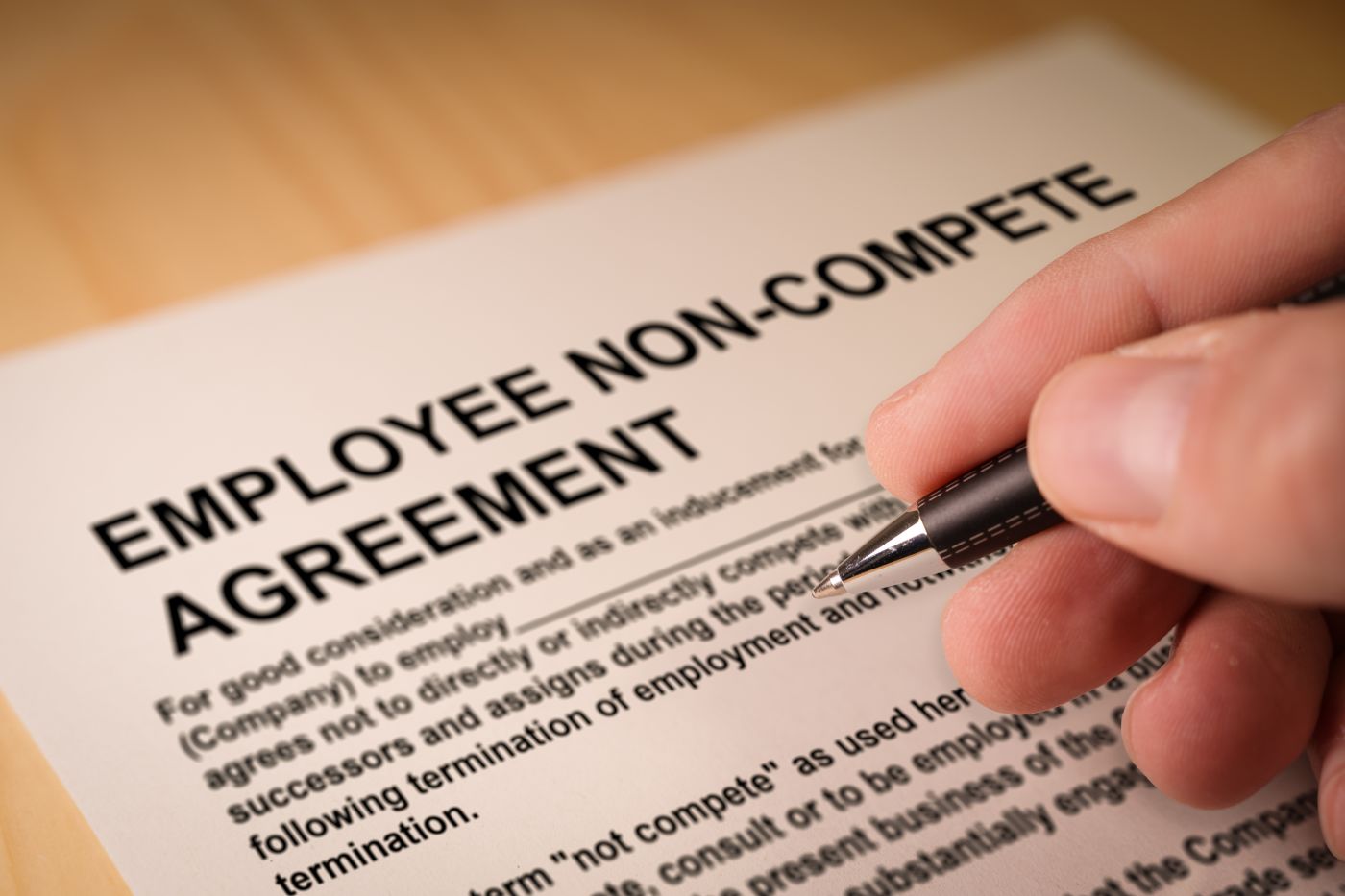
Running a business, whether small or large, involves a complicated web of legal requirements, contracts, and potential risks. Many business owners may initially think that hiring a business attorney in St. Paul, Minnesota, is an unnecessary expense, or something specifically reserved for large corporations.
However, the reality is that having a dedicated attorney can be one of the most valuable assets for any business. Legal professionals like ours at Amicus Law in St. Paul, Minnesota, play a central role in making sure that a company remains compliant, protects its interests, and avoids costly disputes.
That's what we're here to talk about today. Below, we'll explore the top reasons why every business—regardless of size—should have an attorney in their corner.
Staying in Compliance
One of the primary reasons for hiring a business attorney in St. Paul, Minnesota, is to help make sure that your business complies with local, state, and federal regulations. Legal requirements can vary greatly depending on the industry, location, and size of the company. These regulations are often complicated and subject to frequent change.
A St. Paul business attorney can help you stay abreast of these evolving laws and help make sure your business meets all legal requirements. This might include things like:
Business formation: Choosing the right structure (LLC, corporation, partnership, etc.) can have significant tax and legal implications. A lawyer can advise on the best structure based on your goals.
Licensing and permits: Different types of businesses require various licenses, permits, and certifications. An attorney can help make sure you have everything you need to operate legally.
Employment law: From hiring practices to termination procedures, businesses need to comply with labor laws, including wage laws, anti-discrimination laws, and workplace safety standards.
Health and safety: In certain industries (such as manufacturing, construction, or food service), complying with health and safety regulations is critical to avoid legal ramifications and protect employees.
By staying compliant with legal standards, businesses can avoid fines, penalties, or even shutdowns that could arise from violations.
Protecting Intellectual Property
For many businesses, intellectual property (IP) is one of their most valuable assets. Intellectual property includes patents, trademarks, copyrights, and trade secrets, all of which are critical to maintaining a competitive edge.
An attorney can provide invaluable assistance in protecting your business’s IP by:
Filing patents and trademarks: If your business has developed a unique product, design, or logo, an attorney can help make sure that you file the appropriate applications for patents or trademarks to prevent competitors from copying your creations.
Copyright protection: For businesses that produce original content, such as software, books, or music, an attorney can help make sure that the work is legally protected against unauthorized use or reproduction.
Enforcing IP rights: In cases of infringement, having an attorney on hand can help you take legal action against those who misuse your intellectual property. This might include sending cease-and-desist letters, pursuing litigation, or negotiating settlements.
Protecting your business’s intellectual property is essential for preserving the value of your creations and maintaining your market position.
Negotiating and Drafting Contracts
Contracts are an integral part of every business, whether they're with suppliers, customers, partners, or employees. However, contracts are complicated documents that require precise language to help make sure that they protect your interests and clearly define the terms of the agreement.
An attorney can help you:
Negotiate terms: Lawyers may assist with the negotiation process to help make sure that you get potentially favorable terms, whether in supplier agreements, employment contracts, or business partnerships.
Draft legally binding agreements: Having an attorney draft or review contracts helps to make sure that the language is clear and that all legal terms are accounted for. A lawyer may determine that the contract complies with applicable laws and protects your business interests.
Avoid ambiguities: Ambiguous contracts can lead to costly misunderstandings and disputes. An attorney will help make sure that the terms are clear and specific, reducing the risk of litigation in the future.
Address dispute resolution: A good contract will contain clauses that address how disputes will be resolved, such as through mediation, arbitration, or litigation. An attorney can include these provisions to minimize the potential for costly court battles.
Having well-drafted contracts that are legally sound is vital for any business, as poorly constructed agreements can lead to breaches, misunderstandings, and lawsuits. With strong contracts in place, businesses can also work to mitigate risk and handle liability effectively.
Mitigating Risk and Handling Liability
Every business faces risks, but some of the most severe consequences arise when a business is caught off-guard by legal liabilities. A knowledgeable attorney can help you identify and mitigate potential risks, thus protecting your business from unnecessary exposure.
Some ways that an attorney can help manage risk include:
Liability protection: Lawyers can advise on the best strategies for limiting your business’s liability exposure. This may include forming a limited liability company (LLC) or corporation to separate your personal assets from your business’s liabilities.
Insurance: A business attorney in St. Paul can also guide you on obtaining the appropriate insurance to protect your business against various liabilities, such as general liability insurance, workers’ compensation, and product liability insurance.
Employee issues: Lawsuits involving employees—such as wrongful termination, discrimination, or harassment—are common. An attorney can help make sure that your business has clear policies in place and is in compliance with employment laws, reducing the risk of costly lawsuits.
Product liability: If your business sells products, it's essential to help make sure that your products are safe and don't pose a risk to consumers. An attorney can assist in structuring product liability disclaimers and guide you on product testing and labeling requirements.
By minimizing risks and taking proactive steps to protect your business, an attorney can save you from financial ruin and reputational damage. Proactive risk management also makes sure that businesses are better prepared to handle disputes or litigation when they arise.
Handling Disputes and Litigation
Even the most careful business owners will face disputes at some point. Whether it’s a contract dispute, a shareholder disagreement, or a lawsuit from a competitor, having an attorney who's experienced in litigation can help protect your interests.
An attorney can assist in:
Settling disputes out of court: Lawyers can negotiate settlements and facilitate mediation or arbitration, often allowing businesses to resolve disputes without the cost and time commitment of litigation.
Representing you in court: If a dispute can't be resolved amicably, an attorney will be your advocate in court. They can file necessary motions, prepare evidence, and represent your interests throughout the trial process.
Appealing decisions: If your business loses a case, an attorney can help file an appeal and seek to overturn an unfavorable decision.
Having a business attorney in St. Paul by your side during disputes provides the knowledge needed to work through complicated legal processes. With a robust legal strategy for disputes, business owners can also work to safeguard their personal assets from unforeseen liabilities.
Safeguarding Your Personal Assets
As a business owner, you've worked hard to build your company and, by extension, your personal wealth. However, in the absence of legal protection, your personal assets could be at risk in the event of a lawsuit, debt, or business failure.
An attorney can help you:
Structure your business: By forming an LLC or corporation, you can separate your personal finances from your business’s finances, providing you with greater protection from personal liability.
Establish an estate plan: For business owners, estate planning is crucial to make sure that your business continues to thrive after you're gone. A lawyer can help create a plan that addresses succession, tax considerations, and asset distribution.
Help with business succession: If you're planning to sell your business or pass it down to family members, an attorney can help make sure the transition goes smoothly and legally.
By safeguarding your personal assets and planning for the future, a business attorney helps protect the long-term interests of both your business and personal life. By securing your personal assets, you also create a stable foundation for managing employment issues effectively.
Managing Employment Issues
From hiring to firing, employee-related issues are often among the most challenging for business owners. Employment law is a minefield of regulations that vary by location and industry, and a misstep could lead to costly lawsuits and penalties.
An attorney can help you manage these issues by:
Writing employee contracts and agreements: Employment contracts outline the terms of employment, including job duties, compensation, and non-compete clauses. A business attorney in St. Paul can help make sure these contracts comply with employment laws.
Handling employee disputes: From wrongful termination claims to wage disputes, attorneys can help you address employee concerns in a legally compliant manner, minimizing the potential for lawsuits.
Developing policies and procedures: An attorney can help you draft workplace policies (such as harassment prevention or disciplinary procedures) that comply with state and federal laws, reducing the likelihood of legal problems down the road.
Employee benefits and taxation: Attorneys can also advise on structuring employee benefits packages, making sure that your business complies with benefits laws like the Affordable Care Act (ACA) and managing the tax implications of employee compensation.
Working through employment law can be complicated, but having a business attorney in St. Paul on your side can help make sure that your business remains compliant and avoids costly legal issues with employees.
Providing Strategic Business Advice
Beyond the specific legal tasks, attorneys can also provide strategic advice for the growth and protection of your business. Experienced business lawyers often have deep knowledge of industry trends and can advise you on the best courses of action for your company’s success.
Some areas where an attorney can provide strategic value include:
Mergers and acquisitions: If you plan to expand through mergers, acquisitions, or joint ventures, an attorney can guide you through the difficult legal and financial considerations involved.
Franchising: If you're considering franchising your business, an attorney can help you work through the legal intricacies of franchise agreements and the regulatory environment.
Financing and investment: Whether you’re seeking investment from venture capitalists, negotiating loan agreements, or issuing stock, an attorney can help structure the deal in a way that protects your interests.
Having a business attorney in St. Paul, Minnesota, like Attorney Jade Chounlamountry, who understands your business’s goals and challenges allows you to make informed decisions that align with your long-term strategy.
Contact a Business Lawyer Today
By having a business attorney in St. Paul, Minnesota, on your side, you can focus on growing your business with confidence. That's where Amicus Law comes in. Contact us today to schedule a consultation with an experienced lawyer you can count on.



